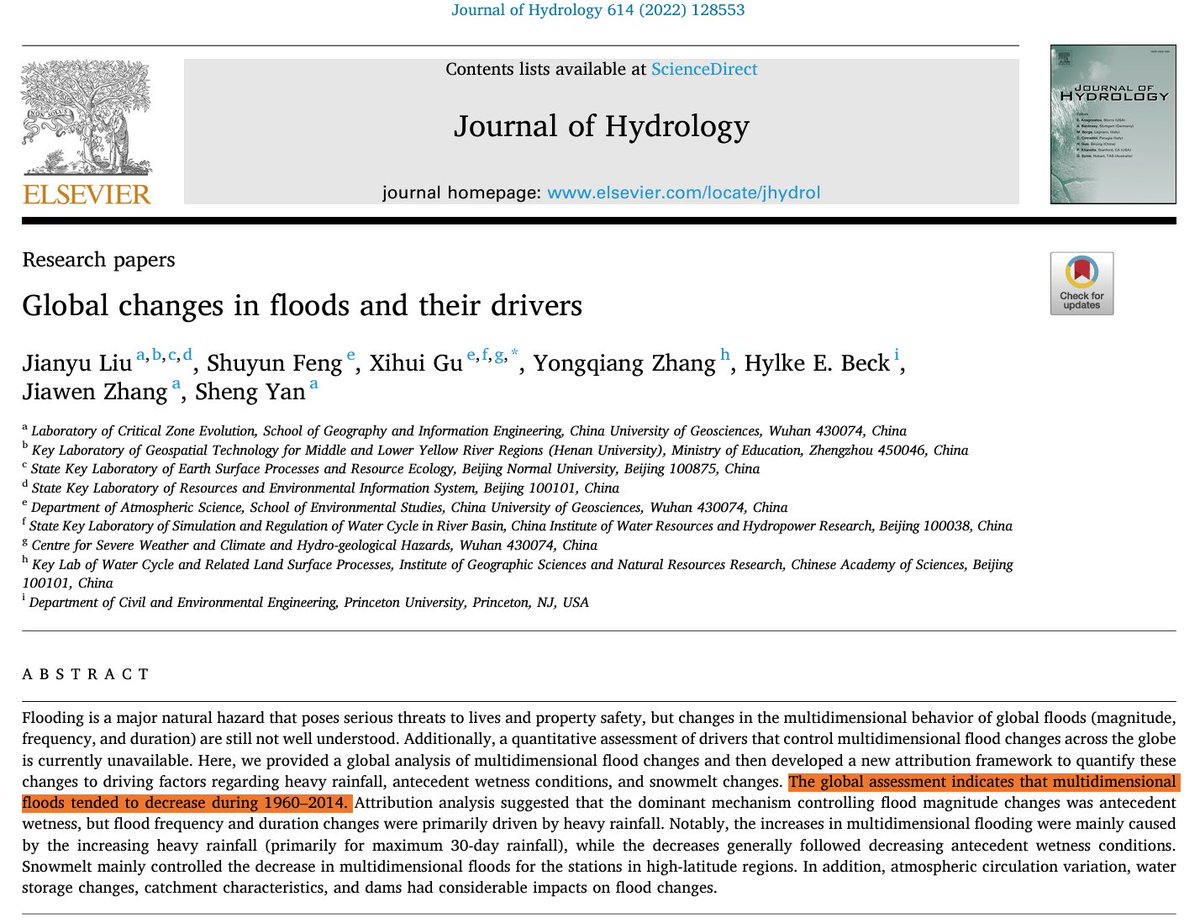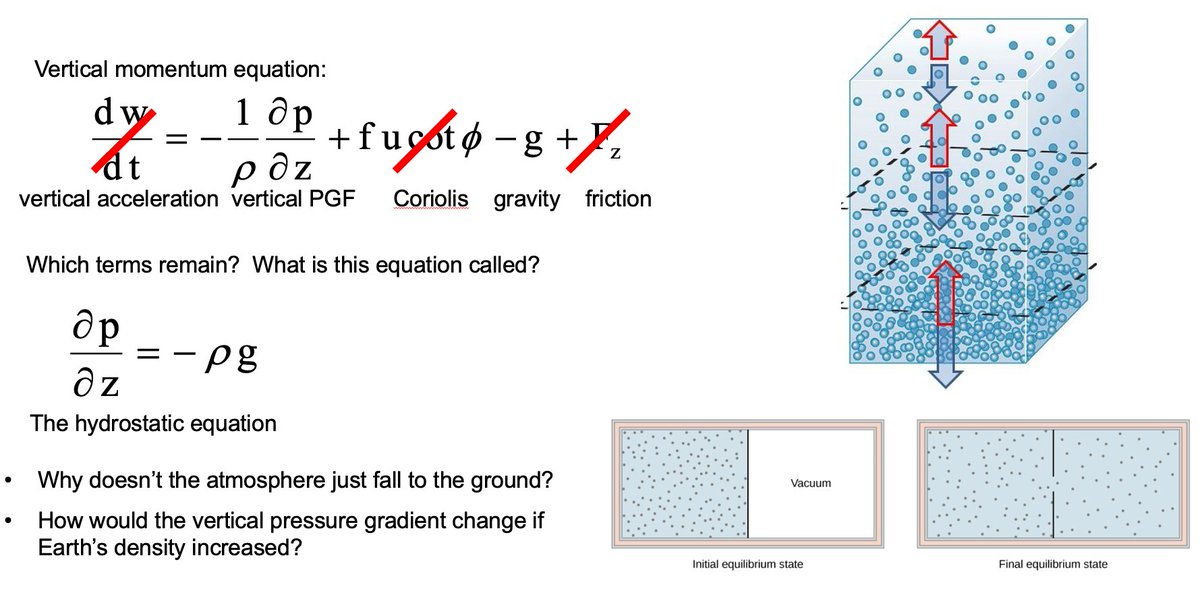
Head of Climate Analytics @IBKR; Adjunct faculty (lecturer) in Energy Policy & Climate @JohnsHopkins; Sr. Fellow @TheBTI
3 subscribers
How to get URL link on X (Twitter) App





 breakthroughjournal.org/p/a-second-tru…
breakthroughjournal.org/p/a-second-tru…

 The Bulletin of the American Meteorological Society released its annual "State of the Climate" report last month. Below, I highlight some of their cataloged trends, ranking them roughly from intuitive to more surprising.
The Bulletin of the American Meteorological Society released its annual "State of the Climate" report last month. Below, I highlight some of their cataloged trends, ranking them roughly from intuitive to more surprising. 


 As of today, August 14th, the Park Fire has burned nearly 430,000 acres (672 square miles), or about 65% of the size of the state of Rhode Island. It is officially still only 40% contained and has destroyed over 600 structures.
As of today, August 14th, the Park Fire has burned nearly 430,000 acres (672 square miles), or about 65% of the size of the state of Rhode Island. It is officially still only 40% contained and has destroyed over 600 structures.

 It is true that both US billion-dollar disasters and global insured disaster losses are increasing, and a large fraction of the overall increase seems to be driven by increases in losses from severe thunderstorms.
It is true that both US billion-dollar disasters and global insured disaster losses are increasing, and a large fraction of the overall increase seems to be driven by increases in losses from severe thunderstorms.




 When considering the risk of natural disasters like floods, the UN’s Intergovernmental Panel on Climate Change (IPCC) has adopted a useful framework for breaking down the risk of impacts.
When considering the risk of natural disasters like floods, the UN’s Intergovernmental Panel on Climate Change (IPCC) has adopted a useful framework for breaking down the risk of impacts. 



https://x.com/PatrickTBrown31/status/1715387117105184858?s=20Thus, any drastic change in weather at the regional level (like in the US) associated with this level of global warmth would be quite concerning when considering climate impacts over the coming decades.
https://twitter.com/PatrickTBrown31/status/1696910491786858571?s=20For climate research, I think the crux of the issue is highlighted here in my thread:
https://twitter.com/PatrickTBrown31/status/1696910508924776791?s=20

 Many previous studies have looked at the influence of climate change on wildfires in California, the US West, and around the world. However, most previous studies have focused on *conditions conducive* to wildfires rather than characteristics of wildfires themselves.
Many previous studies have looked at the influence of climate change on wildfires in California, the US West, and around the world. However, most previous studies have focused on *conditions conducive* to wildfires rather than characteristics of wildfires themselves.








 Global warming’s general enhancement of extreme precipitation is widely accepted due to the fundamental physics that warmer air holds more water vapor. But ‘enhancement’ just refers to the direction of change, not the magnitude.
Global warming’s general enhancement of extreme precipitation is widely accepted due to the fundamental physics that warmer air holds more water vapor. But ‘enhancement’ just refers to the direction of change, not the magnitude.

 As someone who has developed and taught a university class on changes in extreme weather under climate change, I was very surprised to see such a large number (five-fold) being claimed. It would not be consistent with any analysis I am aware of.
As someone who has developed and taught a university class on changes in extreme weather under climate change, I was very surprised to see such a large number (five-fold) being claimed. It would not be consistent with any analysis I am aware of.

 The type of extreme change that the IPCC and the National Academy express the MOST confidence in is the WARMING of extreme cold (cold extremes becoming LESS extreme). These organizations express even MORE confidence in the warming of extreme cold than the warming of extreme heat.
The type of extreme change that the IPCC and the National Academy express the MOST confidence in is the WARMING of extreme cold (cold extremes becoming LESS extreme). These organizations express even MORE confidence in the warming of extreme cold than the warming of extreme heat. 

 When it comes to the loss of life from extreme temperatures, I think the evidence shows that the supposed victory may end up being a failure, and supposed failure is really a victory.
When it comes to the loss of life from extreme temperatures, I think the evidence shows that the supposed victory may end up being a failure, and supposed failure is really a victory. 